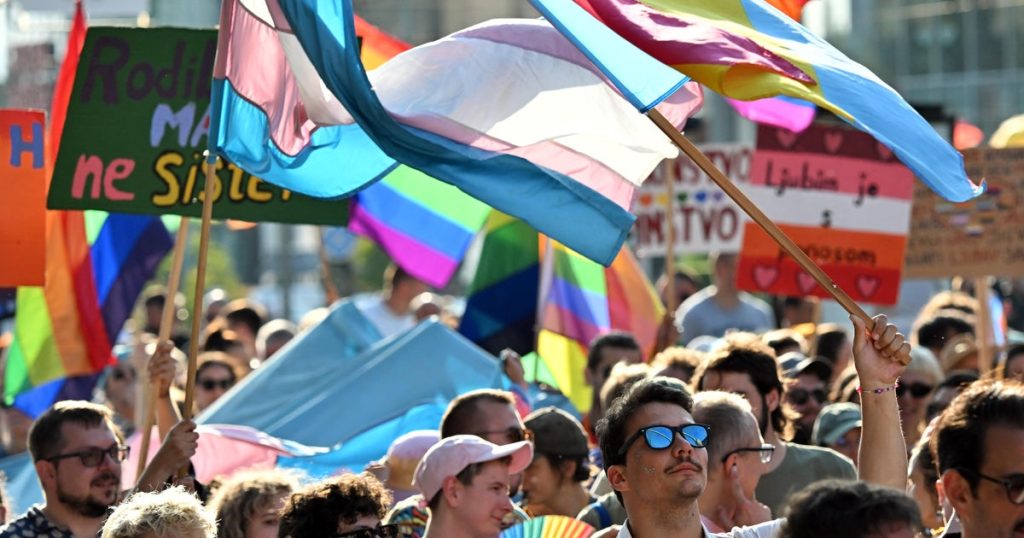In a significant turn of events, major corporations have scaled back their sponsorship and involvement in Pride Month celebrations, impacting events globally. Traditionally a time of vibrant festivities celebrating LGBTQ+ identities and rights, this year’s Pride is shadowed by concerns over corporate commitment to equality. Officials call it a worrying trend, reflecting deeper societal issues amid ongoing fights for inclusion and equality.
| Article Subheadings |
|---|
| 1) The Evolution of Pride Month |
| 2) Corporate Participation and Its Withdrawal |
| 3) The Impact on Events Worldwide |
| 4) Responses from Activists and Communities |
| 5) Looking Forward: The Future of Pride |
The Evolution of Pride Month
Pride Month, celebrated every June, traces its roots back to a pivotal moment in LGBTQ+ history—the Stonewall Inn riots of June 1969 in New York City. Following a police raid at the gay bar, activists fought back, sparking a series of demonstrations advocating for LGBTQ+ rights. This uprising marked a significant turning point, leading to the establishment of Pride marches and events in cities worldwide.
The first Pride march occurred on the anniversary of the Stonewall riots, creating a tradition that has come to represent more than just a celebration. It symbolizes resilience, community, and the ongoing fight for equality. Over the decades, federal recognition was granted in 1999, further solidifying the importance of Pride Month in the United States. Participants use this time not only to revel but to highlight the challenges that the LGBTQ+ community continues to face.
Corporate Participation and Its Withdrawal
In recent years, corporate sponsorship has played a significant role in the proliferation and visibility of Pride Month events. Many companies have embraced LGBTQ+ rights in their marketing campaigns and initiatives. However, 2023 has seen a notable pullback. Major brands that once led Pride Month activities have reduced their financial support or participation in marches and celebrations, sparking concern among advocates.
Industry insiders cite several reasons for this trend. Some argue that corporate backlash due to polarized public opinion is causing hesitation among businesses. Others contend that a lack of genuine commitment to ongoing advocacy has surfaced, leading to the perception that some companies only engage during designated months to further their marketing goals. This sentiment raises questions about corporate accountability in supporting marginalized communities year-round.
The Impact on Events Worldwide
The ramifications of reduced corporate sponsorship have been felt across various global Pride events this year. From rainbow flags adorning the streets of major cities to the celebrations planned in smaller towns, many communities are grappling with limited resources to uphold the festivities. Events that were once grand spectacles are now leaning into more modest, grassroots implementations.
For instance, the iconic New York Pride Parade, which draws millions, has seen reduced floats and fewer participants, echoing a broader trend across the nation and globally. Internationally, cities that looked to larger corporations for support now face similar challenges, with some events risking cancellation or reduction in scale. Activists warn that these changes threaten the visibility and momentum of the LGBTQ+ movement, as smaller communities often depend on these events for recognition and solidarity.
Responses from Activists and Communities
The pullback by corporate sponsors has not gone unnoticed within LGBTQ+ communities. Activists and leaders are calling for renewed focus on grassroots organization and participation. Many argue that while corporate backing is crucial, the essence of Pride Month is community-driven activism.
Multiple grassroots initiatives have emerged, encouraging local participation without reliance on big corporate funds. These community-led efforts highlight the importance of inclusivity and acknowledgment of intersectional issues within the LGBTQ+ spectrum. Activists state that the reduction in corporate sponsorship presents an opportunity to engage more directly with the community, leading to a more genuine expression of Pride values.
Looking Forward: The Future of Pride
As the landscape of corporate sponsorship continues to shift, the future of Pride remains uncertain. However, community leaders stress the importance of resilience. They believe that the historical roots of Pride Month serve as a reminder of the power that lies within collective action.
Mobilizing communities to take charge of their celebrations could foster a renewed sense of identity and unity, emphasizing that true visibility and advocacy come from within. In the face of challenging circumstances, the LGBTQ+ movement is ready to pivot and reshape its future to ensure the ongoing fight for acceptance and equality remains front and center.
| No. | Key Points |
|---|---|
| 1 | Pride Month commemorates pivotal events in LGBTQ+ history, particularly the Stonewall riots. |
| 2 | Corporate involvement has historically enhanced visibility but is diminishing in 2023. |
| 3 | Reduced sponsorships have impacted Pride events across the globe, leading to smaller celebrations. |
| 4 | Activists call for a return to grassroots movements to preserve the essence of Pride. |
| 5 | The community’s resilience may reshape Pride, emphasizing the importance of collective action. |
Summary
The reduction of corporate support for Pride Month celebrations signals a troubling shift that advocates fear could hinder both visibility and advocacy for the LGBTQ+ community. However, the pullback has also sparked a response from activists who emphasize the significance of community-led initiatives. This year presents an opportunity to reaffirm the grassroots nature of Pride, ensuring that the fight for equality continues with vigor and authenticity.
Frequently Asked Questions
Question: What does Pride Month celebrate?
Pride Month celebrates the LGBTQ+ community, marking the historical events that contribute to the ongoing fight for equal rights and inclusion.
Question: Why are corporations pulling back from Pride sponsorships?
Companies may be reacting to polarized public opinion, skepticism about genuine commitment, or shifting marketing strategies amid social controversies.
Question: How can communities respond to reduced corporate support for Pride?
Communities can prioritize grassroots efforts and local participation, fostering a renewed emphasis on advocacy and collective action to ensure the values of Pride Month are upheld.


